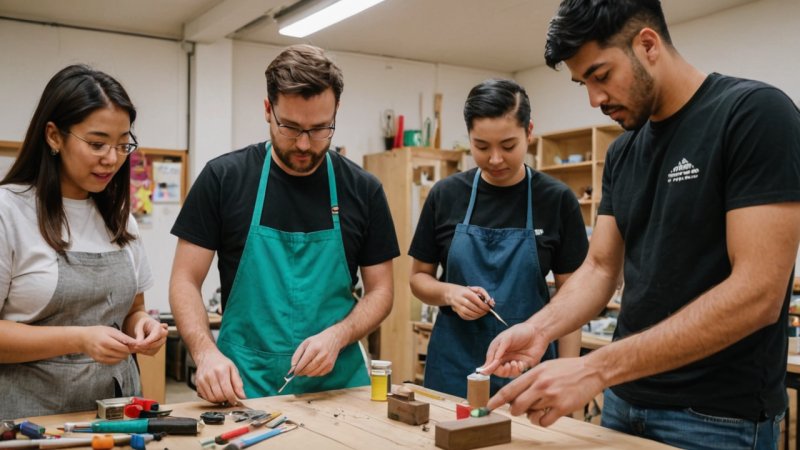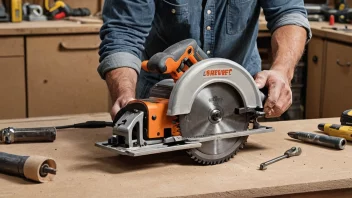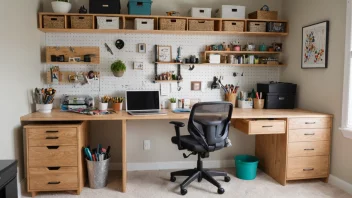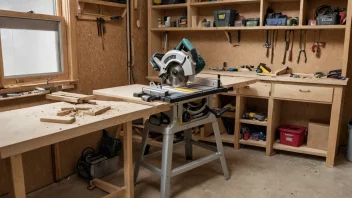In an age where technology and convenience often take center stage, the age-old art of do-it-yourself (DIY) has seen a resurgence in popularity. DIY communities and clubs have sprung up across the globe, bringing together individuals who share a passion for creating, building, and learning new skills. Joining such a community not only fuels creativity but also offers a wealth of benefits that can enhance both personal and professional lives. In this article, we will delve into the many advantages of becoming a part of a DIY community, from skill enhancement to networking opportunities.
1. Skill Development and Learning Opportunities
One of the primary benefits of joining a DIY community is the opportunity for skill development. Members often come from varied backgrounds and possess diverse skills, offering a rich pool of knowledge from which to learn.
- Access to Workshops and Tutorials: Many DIY clubs host regular workshops where members can learn new techniques and skills. Whether it’s woodworking, electronics, or home improvement, these hands-on sessions provide practical learning experiences.
- Mentorship: Connecting with more experienced DIY enthusiasts can lead to mentorship opportunities. Having someone to guide you through complex projects can significantly enhance your learning curve.
- Resource Sharing: Members often share resources, tools, and materials, making it easier to tackle projects without investing heavily in equipment.
2. Networking and Community Building
Joining a DIY community is not just about the projects; it’s also about the people. The connections you make can lead to invaluable friendships and professional relationships.
- Networking Opportunities: Many DIY enthusiasts also work in related fields, such as construction, design, or engineering. Building relationships within the community can open doors for job opportunities or collaborations.
- Shared Interests: Connecting with like-minded individuals can lead to lasting friendships. Whether you’re bonding over a shared project or discussing the latest tools, these connections can enrich your social life.
- Community Support: A strong community offers emotional and practical support. When facing challenges in your projects, having a network of friends who understand can be incredibly motivating.
3. Motivation and Accountability
It’s easy to put off DIY projects when you’re working alone. However, being part of a community provides motivation and accountability that can keep you on track.
- Group Projects: Many clubs organize group projects, allowing members to collaborate on larger tasks. Working together can make projects more enjoyable and less daunting.
- Accountability Partners: Having someone to check in with about your progress can keep you motivated. Whether it’s meeting deadlines or simply showing up for workshops, accountability can drive you to achieve your goals.
- Inspiration: Seeing what others are working on can ignite your creativity and inspire you to take on new challenges.
4. Access to Tools and Equipment
One of the barriers to starting a DIY project can be the cost of tools and equipment. Many DIY communities have solutions to this problem.
- Tool Libraries: Some clubs maintain a tool library where members can borrow tools they may not own. This access can help members take on more ambitious projects without the financial burden of purchasing tools.
- Shared Workspaces: Many DIY communities offer shared workspaces equipped with a variety of tools. This not only makes it easier to complete projects but also provides a collaborative environment.
5. Personal Growth and Confidence Building
Engaging in DIY projects can significantly impact personal growth and self-confidence. The sense of accomplishment from completing a project can be incredibly empowering.
- Problem-Solving Skills: DIY projects often present challenges that require creative problem-solving. Overcoming these obstacles builds critical thinking skills that are applicable in various areas of life.
- Increased Confidence: Successfully completing projects can boost your self-esteem. The more you create, the more confident you become in your abilities.
- Creative Expression: DIY allows for personal expression. Creating something unique to your taste can be incredibly fulfilling and can help you discover new passions.
6. Sustainable Practices and Environmental Awareness
Many DIY communities focus on sustainability and environmentally friendly practices, promoting a culture of recycling and upcycling.
- Reducing Waste: DIY projects often involve repurposing old materials, reducing waste and promoting sustainability.
- Eco-Friendly Practices: Learning about environmentally friendly materials and techniques can increase your awareness and impact on the environment.
- Community Initiatives: Many clubs participate in community projects aimed at improving local environments, fostering a sense of responsibility and connection to the community.
Conclusion
Joining a DIY community or club can be a transformative experience that enhances various aspects of your life. From skill development and networking to motivation and personal growth, the benefits are extensive and impactful. As you engage with others who share your passion for creating and building, you’ll find not only a sense of belonging but also an enriched life filled with creativity and accomplishment. Whether you’re a novice or a seasoned DIYer, there’s no better time to get involved in a community that celebrates the spirit of do-it-yourself.






